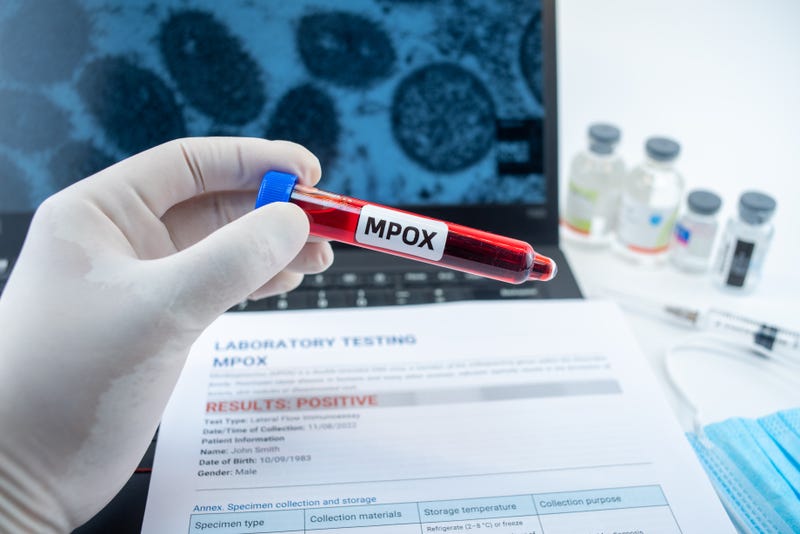
The Los Angeles County Department of Public Health Thursday confirmed another case of a more severe strain of mpox in a local patient who has no known history of travel to areas where the virus is usually found.
The L.A. County announced came two days after Long Beach health officials announced the first locally acquired case of clade I mpox. The two local cases are believed to be the only clade I mpox infections in the nation involving people with no known history of travel.
Want to get caught up on what's happening in SoCal every weekday afternoon? Click to follow The L.A. Local wherever you get podcasts.
Clade I mpox is a more serious strain of mpox that clade II, which led to a 2022-23 mpox outbreak in the United States. Clade I generally causes more severe illness. Symptoms can include rash or lesions, fever, chills, sore throat, swollen lymph nodes and body aches.
Only about eight cases of clade I mpox have been confirmed nationally, health officials said. The county Department of Public Health has confirmed 118 cases of clade II mpox this year.
The clade I mpox patients in Los Angeles County and Long Beach were both hospitalized but are recovering at home.
Neither patient was identified.
"The identification of cases of clade I mpox, which may cause more severe illness than the more common clade II, is concerning," Dr. Muntu Davis, Los Angeles County health officer, said in a statement. "Mpox continues to be spread largely through close, intimate contact with symptomatic people, mainly during sexual activity. Early detection, testing and vaccination are vital to controlling the spread of this virus. Getting both doses of the JYNNEOS vaccine provides the best protection against mpox."
Clade I mpox has been primarily found in Central and Eastern Africa.
Mpox can spread through direct contact with infectious sores or body fluids, sexual or intimate contact, and touching contaminated items such as bedding or clothes. Most people recover within 2-4 weeks, but antiviral treatments may be considered for individuals with or at risk of developing severe illness, health officials said.
Despite the low risk of infection, health officials recommended vaccines for people who may be at increased risk, such as people who are gay or bisexual, men who have sex with men, transgender and non-binary people, people who are immunocompromised, someone who was exposed to a person with mpox, those with occupational exposure, and people planning to travel to areas with ongoing mpox outbreaks.
Follow KNX News 97.1 FM
